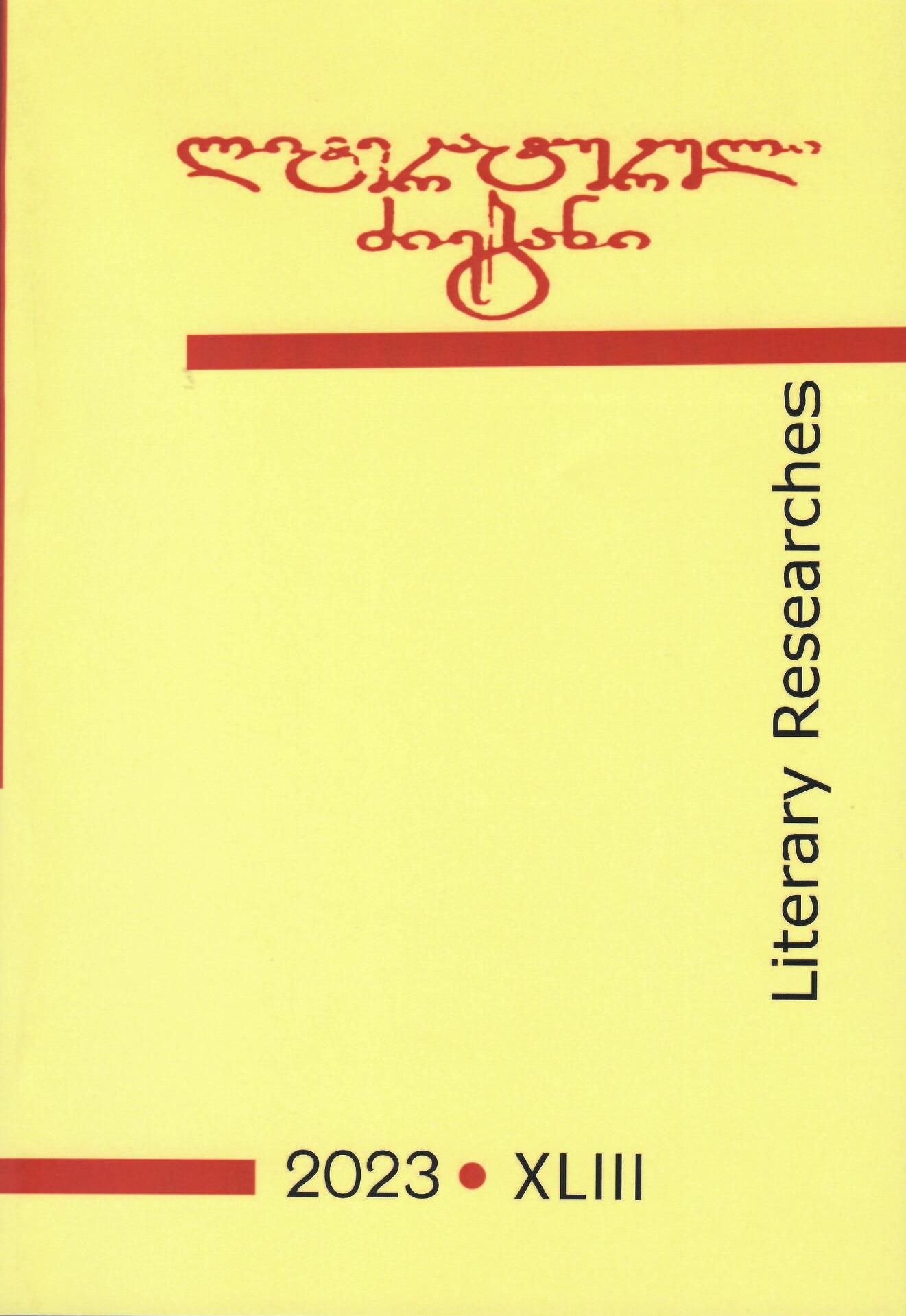Man in old Georgian Historical Prose According to the Historian of David IV the Builder
Published 2023-12-14
Keywords
- Aesthetics of history,
- Being of a man,
- David IV the Builder,
- old Georgian historical prose,
- annals
How to Cite
Abstract
Aesthetic feeling is a genetic specificity of Georgian thinking. Georgian
nature has always been imbued with the spiritual need for beauty, the sublime
and goodness. Such an approach is significant not only for literary-poetic
thinking, but also for historiography. The purpose of our article is to present
the philosophy, aesthetic world view, and the human model presented in
the ancient chronicles, captured in Georgian historical texts.
The subject of our interest is to determine why Georgian chronicles often resemble works of art. Or why historians do not shy away from mythologizing events?
We think that we are dealing with a certain approach of Georgian historiography, a principle that I. Javakhishvili calls history philosophical. When evaluating this or that historical fact, the general depth of the historical works, its philosophical nature should be taken into account. As it is mentioned in the scientific literature, it is difficult to determine the meaning and regularity of history only in real historical facts, because most often the regularities themselves were violated in us. That’s why historians often filled the meaning of history with legendary and fairy-tale stories. In Georgian annals there are a lot of such facts and events, which are undoubtedly examples of literal prose. Narration, the style of story-telling is loaded with artistic-representative means, types of tropes. All this confirms the principle of aestheticization of history, that the Georgian chronicle is not just a synthesis of meaningless facts and events, it is the beauty and poetry of thought, from a certain point of view.
History is the history of human passions. On the pages of numerous annals and chronicles, in the background of great wars, political decisions, relations between countries, economic and social conflicts of demonstration of power, large-scale personalities distinguished by the depth of thought, who created epochs in the arena of history, are drawn. It is man who is the main hero of historical texts, every action of a man is the testimony and manifestation of his humanity.
Behind every large-scale event there is a great human being with his mental space and broad vision. Knowing their personality leads to knowing the historical truth. Thus, history is not so much a knowledge of external facts or events, it is also a form of selfknowledge; And self-awareness is impossible without one’s own “I”.
Historical consciousness forces us to stand face to face with our own “I”. It helps us to delve into the anthropological depths of humanity, the causeandeffect relationships of events. In history, man always returns to himself. He tries to restore past feelings in his memory. In the wake of this, the life of the “crowned ones”, the merits of our great ancestors, and the insight of individuals leads us to the knowledge of our own ethnicity, genetic identity, and this is the same self-knowledge, which, as we have already mentioned, belongs to the essence of historical consciousness.

